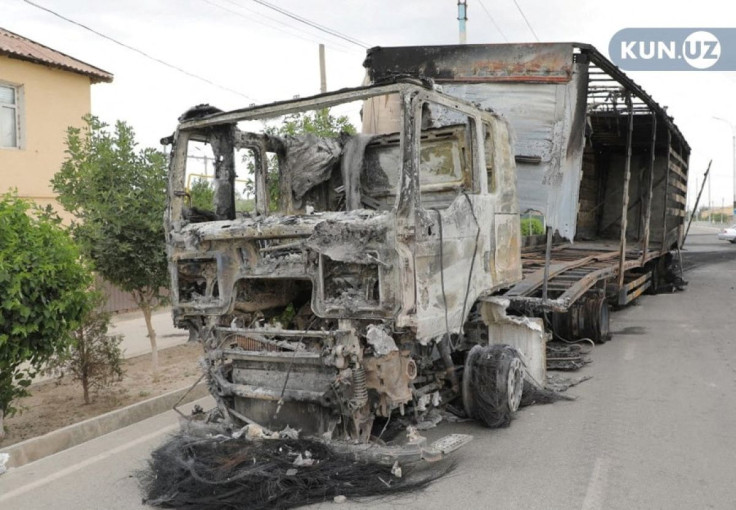Uzbekistan Reports Casualties In Unrest, Opposition Says At Least 5 Killed

Uzbekistan's President Shavkat Mirziyoyev said on Sunday there were casualties among civilians and law enforcement officers after rare protests in the Central Asian country, and an exiled opposition politician said at least five people had been killed.
Separately, a local government official told an Uzbek news website that thousands of people have been hospitalised.
In a statement posted online, Mirziyoyev said rioters had carried out "destructive actions" in the city of Nukus, capital of the northwestern Karakalpakstan region, by throwing stones, starting fires and attacking police.
"Unfortunately there are victims among civilians and law enforcement officers," he said. The statement did not specify the number and nature of the casualties.
Sultanbek Ziyayev, the head of the Ministry of Health of the Republic of Karakalpakstan, told news website Daryo.uz that hospitals in Nukus were full of patients who had been wounded when protesters clashed with security forces.
"Thousands of wounded have been hospitalised and are being treated," he said, according to the website.
Photographs from Nukus published on Sunday by another news website, Kun.uz, showed street barricades, burned trucks and a heavy military presence including armoured personnel carriers.
Videos shared on social media showed at least two severely wounded people being carried by their arms and legs. One was bleeding from the abdomen, while the other was screaming.
Another showed a young man crouching by an apparently lifeless body in the street, screaming "A man is dying" and then running for cover as shots rang out. Reuters could not immediately verify the authenticity of the videos.
An exiled opposition politician, Pulat Ahunov, told Reuters that, based on contacts with local sources and video evidence, at least five people had been killed. He said there were unconfirmed reports of dozens more dead.
Ahunov said people were unable to move around and obtain more information because of a state of emergency imposed by the authorities.
Uzbekistan is a tightly controlled former Soviet republic where the government clamps down hard on any form of dissent. It was the second outbreak of unrest in Central Asia this year, after Kazakhstan crushed mass protests in January and Russia and other former Soviet republics sent in troops to help the authorities restore order.
The protests in Uzbekistan were prompted by planned constitutional changes that would have stripped Karakalpakstan of its autonomous status. In an about-turn, the president dropped those plans on Saturday.
Ahunov, chairman of the opposition Berlik party, told Reuters from Sweden that he condemned the use of lethal force.
"The authorities, from the start, should have opted for dialogue and negotiations," he said.
He said he feared the potential for the situation to escalate into an ethnic conflict between Uzbeks and Karakalpaks, a minority group with their own language. Authorities had called a public meeting for Tuesday to discuss the situation, he added.
Kazakhstan said it was concerned by the events in Uzbekistan and welcomed moves by the authorities to stabilise the situation.
Steve Swerdlow, Associate Professor of Human Rights at the University of Southern California and an expert on the region, said Uzbekistan should engage as transparently as possible in declaring casualties and the use of force and over the longer term look at what concerns were at the heart of the protests.
© Copyright Thomson Reuters 2024. All rights reserved.





















